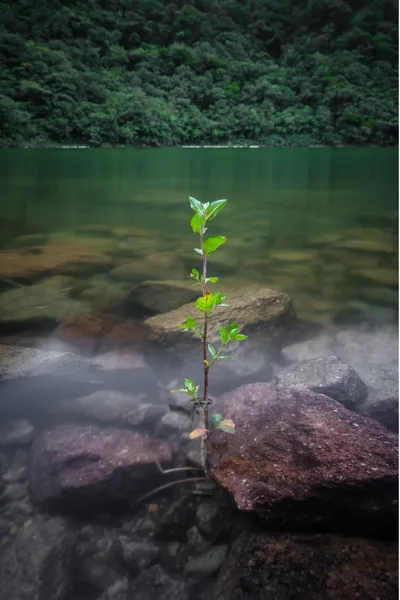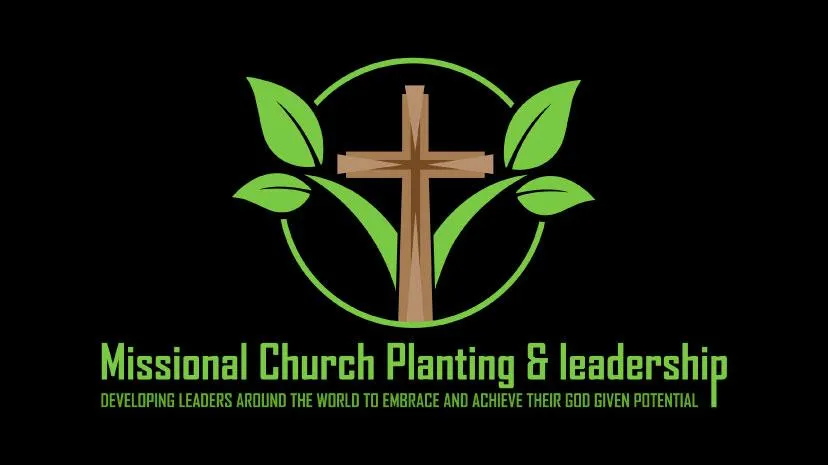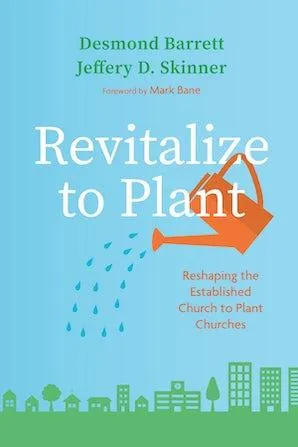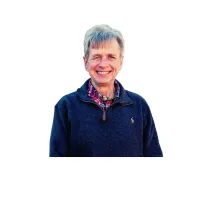
Go Forth and Multiply
We are blessed to be a blessing. When we hoard the blessings, the blessings cease, and they ruin us. Dr. Jeffery D. Skinner
Go Forth and Multiply
Genesis 12:1–2, the Lord said to Abram, "Leave your native country, your relatives, and your father's family, and go to the land that I will show you." This verse is an example of God calling his people to leave their comfort zone and go out into the world in order to be a blessing. Even before this, Genesis 1:1–2 tells us God had created everything: the heavens above and the earth below. It was all good, and then he created humanity, and God says we are very good. And then Genesis 1:28 says the following: "Then God blessed them and gave them this directive: "Be fruitful and multiply." Populate the earth. "I make you trustees of My estate, so care for My creation and rule over the fish of the sea, the birds of the sky, and every creature that roams across the earth." You probably know the story from here, but a quick recap will refresh your memory. Adam and Eve are thriving in the garden of Eden. The only other directive god had given them was not to eat of the tree at the center of the Garden, the tree knowing good and evil, lest they die.They disobeyed, and the world began to spiral from there. They had not been satisfied with the blessings God had given them with every other tree in the garden. The adversary managed to plant a seed of doubt in Eve that God was hoarding His blessings for them, and as a result, she decided to take what should rightfully belong to them. The fruit of the last tree
Some time later, their two oldest children, Cain and Abel, are working in the field, and Cain becomes jealous that God liked Abel's offering better. The Bible doesn't explain why; that is not the point of the narrative. In a fit of rage, Cain kills Able because the pattern of sin from their parents has been passed on to their children, except only Cain acts upon it. He has become convinced that God is holding out on blessings for him. If Abel is dead, God will have no choice but to give all the blessings to him. Like his mother, Cain wants all of God's blessings, not some. Instead of blessing others with the blessings God gave him, he hoards them. He is convinced God is not trustworthy.
Eventually, we read the story of the one good man left after the catastrophe in the garden, Noah. We are told he is faithful. How do we know? Because God tells him to build an ark that will rescue those who choose to enter. Noah obeys,God and builds the ark, despite the fact that we are told rain, such as foretold by God, had never happened. Noah simply trusts that God has his best interest in mind. The rest of humanity refuses the blessing of the ark, failing to recognize it as such until it is too late. God promises never to destroy humanity again in that way and hangs up his bow of war in the sky as a reminder of that promise, but also to as a reminder that He can be trusted.
However, even after starting over with Noah and his family, they too soon forget, and they once more become convinced that they are going to build a tower to heaven to reach God. Perhaps they are thinking, "Heaven is where God keeps His blessings, so we'll climb up there and take them for ourselves." Silly, people! Even with all of their effort to build their tower to God, He STILL has to come down. As a consequence of their distrust of God, their lives become chaotic. They misunderstand each other, conflict erupts, and they are scattered.
Finally, we reach Abram. in Genesis 12:1-2 Apparently God chooses him, not because he earned it, to pour out his blessings, but it comes with a test of obedience. Will Abram trust God? God told Abram 1 "Abram, get up and go! Leave your country. Leave your relatives and your father’s home and travel to the land I will show you. [a] Don’t worry—I will guide you there. 2 I have plans to make great people from your descendants. And I am going to put a special blessing on you and cause your reputation to grow so that you will become a blessing and example to others.
The key thought here is the same as it was in the beginning with the first humans. "I will bless you, and with my blessings, you will bless others." Again with Noah, "I will bless or save you, and through you, I will save others." Finally, it is Abram's turn. Abram, like Noah, obeys. He leaves everything familiar—the place he was born, along with the people he was born with, and the land on which he was born. in order to receive the blessing. Abram had to leave home and go out into the unknown. And then once God blesses him, His wife, who is barren, will bless the earth wit ha great nation and many people, through which God will continue to bless everyone else.
It is understandable why one might be hesitant to leave him. Home is comfortable. Even if there are neighbors we do not like or stumps in our yard, they are our neighbors and our stumps. If we leave and go somewhere unknown, we might have worse neighbors; we might have bigger stumps. Home is like an old pair of shoes we bought years ago, and they are so comfortable we refuse to give them up. They are so comfortable, until finally they fall apart, the heel is coming off, our toe hangs out the end. We are forced to buy new ones, and when we do, we realize they were not that comfortable anyway. We suddenly realize our back is not hurting any more. Our posture is better. We feared losing our comfort, but once we let go of the old and embraced the new, we realized just what a blessing it is to have the new.
I work with a lot of churches that are in need of being replanted. I have pastor friends whose churches are in decline. In fact, it is easier to find a church in decline that needs revitalization than a healthy one that is thriving. What I find in almost every case is a congregation with a rich history. They were often planted by a faithful few, and God blessed them, added to their numbers, and they grew. They thrived. They blessed their community. They held Vacation Bible Schools; they fed the poor; they had clothing closets and food kitchens. They discipled the neighborhood children and had a bus ministry or van ministry. Every Saturday, a group would meet at the church, and they would go around the community inviting the kids and then returning on Sunday to pick them up. Some Sundays, they would run the bus 3 or 4 times a day because they had so many children.
These churches have become more like a pond filled with scum and unhealthy growth than a river teeming with life. They are stuck in an old pair of shoes with the heel coming off and a tie hole poking through. Instead of going out for new shoes, they stay home in comfort, embarrassed by their current state and continuing down the path of death.
God calls us to be good stewards of his blessings by leaving our comfort zone and going out into the world to share them with others. We must recognize that we are called to be a blessing not just for ourselves but for those around us as well. When we do this, we can create vibrant communities full of life where everyone can thrive.
the
I work with lot of churches that are need of being replanted. I have pastor friends who churches are in decline. In fact it easier to find a church in decline in need of revitalization, than it a healthy one
Check out Dr. Skinner's free training.
"How to Launch and Grow a Kingdom Minded Ministry with a Multiplication Mentality in Less Than a Year."

Discover how to quickly design professional looking websites.
Download our 25 free design resources guide.
Subscribe to our Newsletter for additional content related to each podcast episode.

Discover how to make your opt-in forms irresistible.
Purchase Dr. Skinner's Newest book which was Co-Authored with Dr. Desmond Barrett.

Revitalize to plant reshapes the conversation around church planting and revitalization.

Dr. Jeffery D. Skinner, Husband, Father,Pastor, Author, Missional Leadership Coach
Father, Husband, Pastor, Planter, coach, podcaster, author, serial entrepreneur, child of God, Dr. Skinner is a passionate Christian Leader who loves helping other ministers and Christian leaders discern their God given vision and mission for their local context to lunch and grow their church or ministry in their local community. He is a connector.
Dr. Skinner finds common ground and crossover and bridges people to each other. Dr. Skinner has over 20 years of entrepreneurial experience in a myriad of secular life such as the IT Industry, but also has over 15 years experience panting churches. He is a Senior Master Trainer for Dynamic Church Planting International.
Dr. Skinner is currently serving as the Global director of Academy Online Coached Training for DCPI, where he is leading a team to develop the coaching curriculum for their 9 training tracks for the world.
Copyright - All Rights Reserved


